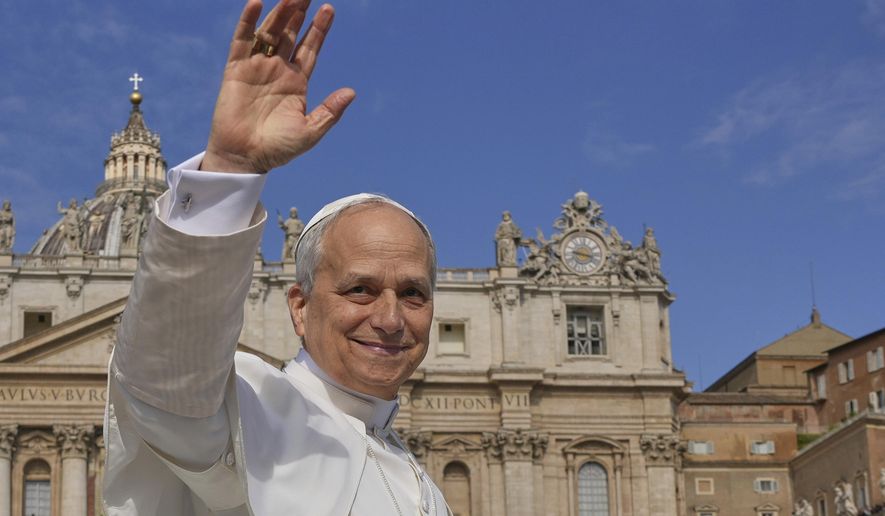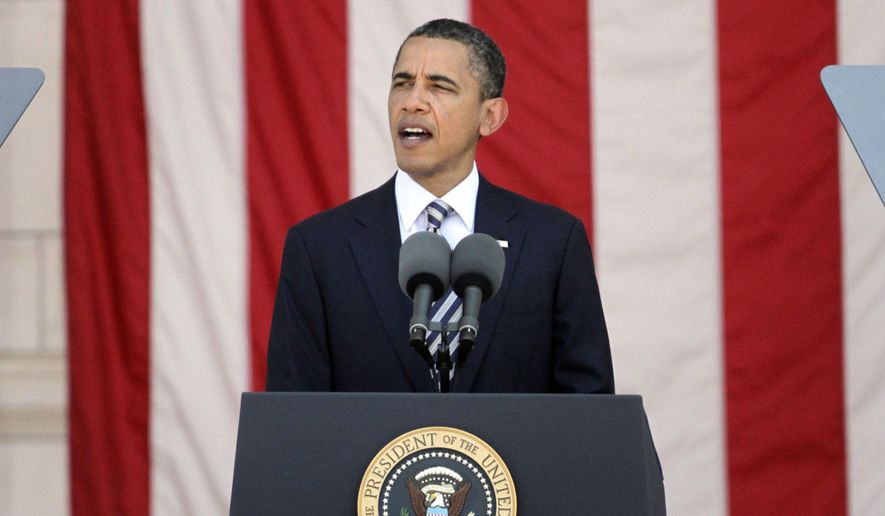Keeping Christ at the Center of Our Lives Amid Technological Advancement Is the New Pope’s Daunting Task

Tom Howell Jr. | June 9, 2025
(The Washington Times) — Artificial intelligence is the nuclear fission of the 21st century. It can at once benefit humanity and destroy it. Pope Leo XIV made it clear in the first days of his reign that he understood the threat.
Since the advent of the Atomic Age, the world has lived in fear of the bomb, but we quickly and necessarily learned how to harness the destructive power of nuclear fission for the benefit of man. The clear immorality of nuclear holocaust was evident from the beginning, as was the catastrophic environmental damage of uncontrolled nuclear power. Its benefits to the natural environment were ultimately also realized, producing electrical power worldwide without harmful emissions.
Like his namesake who deftly addressed the challenges of industrialization and the rise of Marxism in the late 19th century, the newly elected pontiff faces the challenge of grounding an increasingly mechanical world in the Gospels that bring true freedom and fulfillment.
Benedict XVI warned of the perils of relativism and subjective truth, both of which find their ardent advocates in media, Big Tech, higher education and government elites. His successor, Francis, warned of the dehumanizing impact of technology and how the digital age was creating false connections that separate us from God and one another.
Pope Leo faces an unrestrained threat that is the confluence of these and imperils the very soul of God’s kingdom on earth.
Pope Leo XIII’s inspired encyclical, Rerum novarum, addressed the rights of workers abused by industrialization but was clear in its opposition to socialism. It was an attempt to define a role for the church in social justice and an effort to defend property and commerce as indispensable to improving the quality of life on earth.
Although Rerum novarum is often cited as Leo XIII’s most important anti-socialist, pro-private-property social justice encyclical, Quod apostolici muneris also provides clear guidance for the new pope and the world on the challenges of AI. Leo XIII wrote of “that sect of men who … are called socialists, communists, or nihilists, and who, spread over all the world, and bound together by the closest ties in a wicked confederacy, no longer seek the shelter of secret meetings, but, openly … strive to bring to a head what they have long been planning — the overthrow of all civil society whatsoever.”
There can be no doubt that this is an accurate description of our times.
A hundred years later, Pope John Paul II developed this teaching in the wake of the end of the Cold War and the collapse of Soviet communism in his Centesimus annus.
The church has long opposed state control of the means of production and the diminishment of private property. Now, unchecked, AI could reduce people to being a mechanism of the state.
The machines also could aid the state in the subjugation of its people.
AI can enhance human capacity but also lead to a deadening of our senses, which would make men more pliable, isolated and therefore controllable.
Leo XIII was correct, of course, that workers deserved protections against exploitation and private commerce has been responsible for remarkable advances in the quality of life for billions. With AI, however, inevitable abuse will lead to unimaginable suffering and constraints on human freedom at the hands of the state.
What may start out as a commercial enterprise or tool of convenience can end up weaponized against humanity. Today, our global community is reeling from sharp decreases in mental and physical health because of the technology that has made life more convenient. People, particularly the young, are addicted to screens and are becoming increasingly lonely and depressed. A growing welfare complex has stunted economic mobility for vulnerable communities. Wages have failed to keep up with the cost of government systems. Media push ideologies that have decreased the importance of biblical truth, faith and family.
Industrialization of food production processes has created a food supply that has, among other things, led to chronic illness. What started out as “social media” has become an anti-social force that has caused intense division and anxiety.
Nothing will speed the advancement of socialism and communism, both of which undermine human dignity, like the development of AI without legal and moral guardrails. How to do that while making Christ and the teaching of the Gospel the center of our lives is the new pope’s daunting task.
It is a biblical truth that there is dignity in work. Man was meant to toil in the fields of his chosen labor. Advances in AI will eliminate countless millions of jobs up and down the wage scale the world over. Workers replaced by AI won’t just be low-wage warehouse or factory employees. They also will be lawyers, doctors, accountants, engineers and researchers.
Without question, AI and technological advances must be pursued as part of the natural expression of our development as a species. Like the industrial revolution and later the computer age that made certain jobs obsolete, we should expect some evolution of the job market as a result of new technologies. What makes AI more perilous is the broad applicability of the technology and the potential for disruption in a wide range of industries.
Much of our debate today about AI focuses on how it can be used to manipulate information, drive caustic agendas and decrease human cognitive strength by replacing human intellect. We are only now beginning to consider how AI can be used to replace human companionship with totally unnatural relationships or how to govern machines that to think and act for themselves, leaving humans behind.
Truly, how far away could we be from a time when a computer is left to make life-altering decisions for our most vulnerable? This is even more perilous given the left-wing movement to expand assisted suicide, including for those who suffer from mental illness or addiction.
Our souls are connected to our work in this life. Our freedom from authoritarianism is connected to our ability to provide for ourselves so that we can control our own destinies without the interference of the state. The loss of work and wages through the expansion of AI over the next several decades will strike at the heart of both those core tenets of spiritual and physical fulfillment.
Elon Musk, other tech titans and left-wing influencers have already begun clamoring for the need for universal basic income. Universal dependency will lead to the death of freedom.
We cannot accept this future as an inevitability.
Most important, from Pope Leo XIV’s standpoint, AI as a tool of statists can push us further from God. People struggling to find fulfillment in their work or family life, who are dependent on the state, whose relevance has been replaced by a computer, risk themselves becoming automatons and not perceived as glorious creations of God deserving of freedom and dignity.
How we preserve the dignity of work and financial independence from the state is also an unanswered question.
Pope Leo XIV now presides over a church that has survived constant persecution, emperors, kings and empires, world wars and ages of darkness and light. He sees the clouds on the horizon.
The question for leaders of all faiths, nations, businesses and our global community remains: Will we listen and act now, following the pope’s lead to protect human dignity, or will we be stripped of our own by our own technology?




















